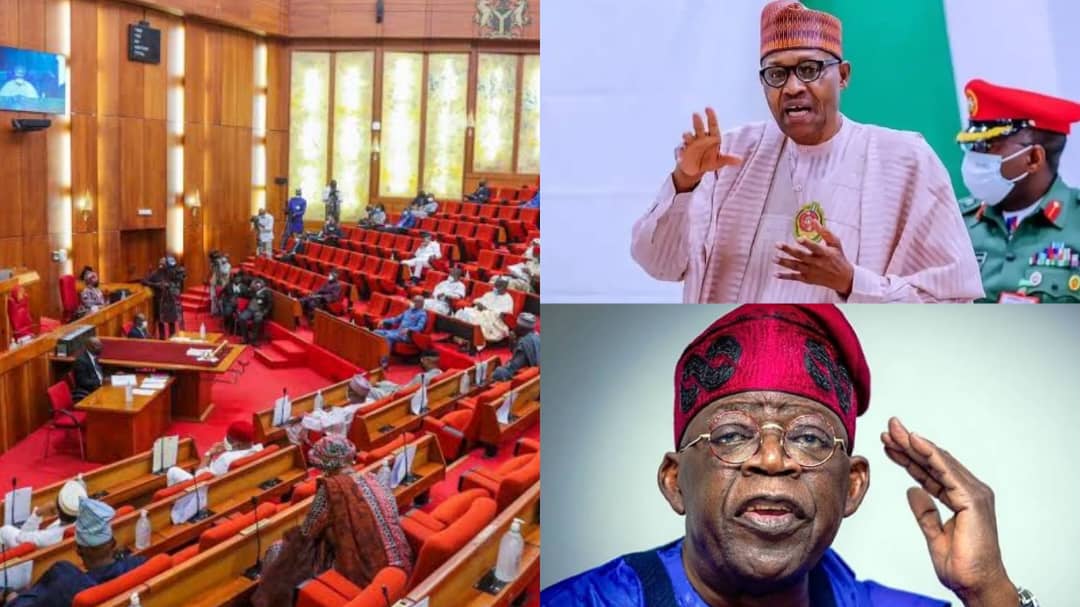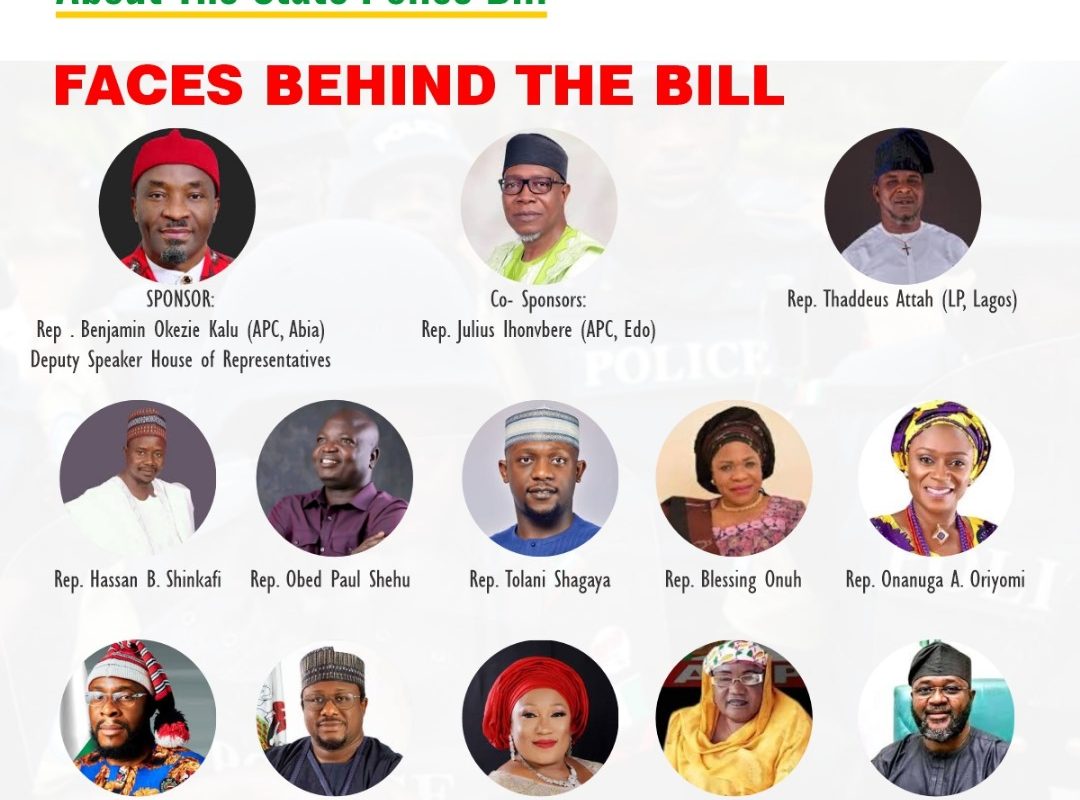As the House gears up for another week of legislative activities, a series of crucial bills poised to take centre stage are up in this Legislative Intelligence Forecast Entry (LIFE) by OrderPaper. A bill calling for the regulation of NGOs, 2 bills seeking to amend critical areas of the constitution, and a bill on cybercrimes from the Senate are expected to drive debates, discussions, and decisions in the coming days.
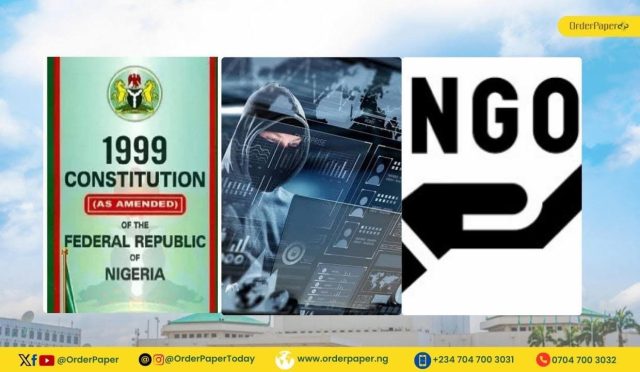
As the House of Representatives convenes this week, the legislative agenda promises to be both diverse and contentious, with several pivotal bills set to take centre stage.
Among the array of proposed legislation, a bill advocating for the regulation of Non-Governmental Organizations (NGOs), two bills aimed at amending critical aspects of the constitution, and a significant cybercrime bill from the Senate are poised to command attention and scrutiny.
As lawmakers gather to debate these and other pressing issues, the importance of informed and constructive dialogue cannot be overstated. The legislative process serves as a vital mechanism for advancing the collective interests of the Nigerian people and shaping the country’s trajectory. By engaging in rigorous debate, thoughtful analysis, and stakeholder consultation, legislators have the opportunity to enact laws that reflect the values and aspirations of the nation.
At OrderPaper, we have chosen to enhance this process with an analysis of these bills.
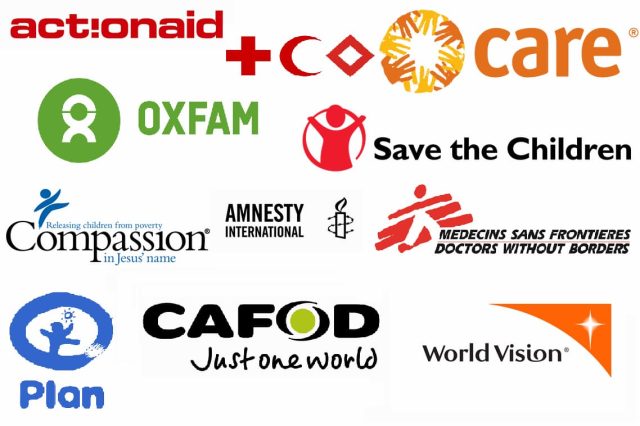
NGO Regulation Bill:
The introduction of the Non-Governmental Organizations (NGO) Regulation Bill, formally titled “A Bill for an Act to Establish Non-Governmental and Civil Society Organizations Agency for the Promotion of Social Development Activities in Nigeria and for Related Matters (HB. 941)” by Rep. Sada Soli, is poised to ignite debates and discussions across Nigeria. As the bill advances to its Second Reading in the legislative chambers, it is clear that this proposed legislation will be met with both support and scrutiny.
At its core, the NGO Regulation Bill seeks to establish an agency tasked with overseeing and regulating the activities of non-governmental organizations and civil society organizations operating within Nigeria. Proponents of the bill are likely to argue that increased regulation is necessary to ensure transparency, accountability, and the proper utilization of funds by these organizations, particularly in light of concerns surrounding financial mismanagement, corruption, and dubious activities within certain NGOs.
On the other hand, opponents of the bill have raised valid concerns regarding the potential infringement on the autonomy and independence of NGOs and civil society organizations. They argue that excessive regulation could stifle the vital work undertaken by these organizations in promoting social development, human rights, and civic engagement. Furthermore, there are fears that stringent regulatory measures could be weaponized by authorities to suppress dissent and curtail freedom of expression and assembly.
WATCH NOW:
The crux of the matter lies in striking a delicate balance between ensuring transparency and accountability within the NGO sector while safeguarding the autonomy and freedom of these organizations to carry out their essential functions without undue interference from the government.
Ultimately, the NGO Regulation Bill represents a critical juncture in Nigeria’s democratic journey, where the principles of transparency, accountability, and civil liberties must be upheld and protected.
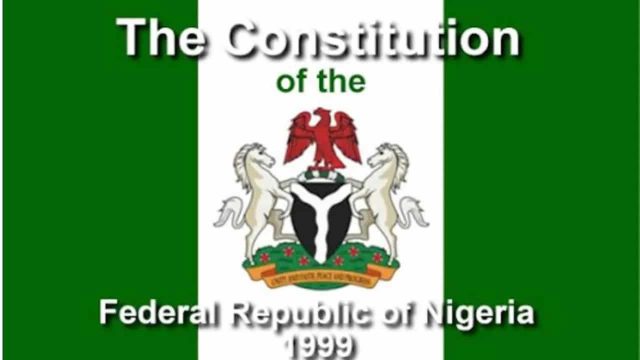
Constitutional Amendment Bills:
This week, the House of Representatives in Nigeria is gearing up for crucial discussions surrounding two significant constitutional amendment bills. The bills, which are slated for their second readings, aim to address fundamental aspects of governance and political participation in the country.
The first bill, titled “A Bill for an Act to Alter the Constitution of the Federal Republic of Nigeria 1999 to Provide for Establishment of State Police and for Related Matters,” spearheaded by Hon. Benjamin Okezie Kalu and seventeen other distinguished lawmakers, is a response to the ongoing debate regarding the need for decentralized security apparatus in the country.
Proponents argue that the establishment of State Police would enable more effective and responsive law enforcement at the regional level, addressing the unique security challenges faced by different states. However, critics express concerns about the potential misuse of power and the need for clear guidelines to prevent abuse.
The second bill, “A Bill for an Act to Alter the 1999 Constitution of the Federal Republic of Nigeria (as amended) to change the Educational Qualification for Elections into Certain Political Offices and for Related Matters,” is championed by Hon. Adewunmi Oriyomi Onanuga.
This bill seeks to revise the educational qualifications required for individuals seeking certain political offices in Nigeria. The proposed changes aim to ensure that electoral eligibility criteria reflect the evolving educational landscape of the country while promoting inclusivity and equal opportunities for political participation.
As these bills reach the second reading stage, members of the House of Representatives are expected to engage in robust discussions and debates on the potential impact of these constitutional amendments.
Constitutional amendments have historically been contentious processes, reflective of divergent political ideologies and interests. The outcomes of these deliberations could have far-reaching consequences for the country’s security infrastructure and the eligibility criteria for political officeholders.

Cybercrime bill from Senate:
As the nation grapples with the rapid evolution of technology, the Senate has proposed a significant amendment to the Cybercrimes (Prohibition, Prevention, Etc.) Act of 2004 through the Cybercrime Amendment Bill (SB.188). This bill, presented by the Senate Leader, comes amid a growing discourse on the regulation of social media, sparked by a call for censorship by the Chief of Staff to the President, Femi Gbajabiamila.
Simultaneously, another bill looms on the horizon, one that seeks to regulate non-governmental organizations (NGOs). While the regulation of NGOs may aim to enhance accountability and transparency, there are concerns that such measures could stifle civil society and limit the space for dissenting voices.
The Cybercrime Amendment Bill seeks to update and enhance the existing legal framework for combating cybercrimes in Nigeria. As technology continues to advance, so do the tactics of cybercriminals. The proposed amendments aim to equip law enforcement agencies with the necessary tools to effectively combat modern cyber threats.
Key provisions of the bill include expanded definitions of cybercrimes, increased penalties for offenses, and improved mechanisms for international cooperation in the investigation and prosecution of cybercriminals. While the intentions behind these amendments are commendable, concerns arise about the potential impact on freedom of expression, privacy, and the broader implications for digital rights.
However, with the call for social media censorship by Gbajabiamila, there is a need for careful consideration to ensure that the legal framework strikes the right balance between protecting citizens from cyber threats and safeguarding their rights to free expression in the digital realm.
In navigating these complex legislative waters, policymakers must uphold democratic principles and respect constitutional rights. While it is imperative to combat cybercrime and protect citizens from online threats, any measures taken should not unduly infringe upon individual freedoms or impede the functioning of a vibrant digital ecosystem.
In the weeks ahead, the eyes of the nation will remain fixed on the hallowed halls of the National Assembly, where the fate of these pivotal bills will be decided. In navigating the complexities of the legislative landscape, lawmakers must remain steadfast in their commitment to upholding the principles of democracy, justice, and the rule of law.
David Oputah
Oputah David M is a Bloomberg-trained Journalist with a diversified experience in online journalism and newsroom management. He is a 2023 MTN Media Innovation fellow!


